The tourism industry is constantly evolving as new digital technology emerges. In this article, we explore some of the digital trends that are going to be most significant in the industry throughout the next year: from virtual reality, which is changing the booking process, to augmented reality, which is enhancing the in-person experience, to artificial intelligence, which is fundamentally changing customer service.
Table of Contents:
- 21 Hot Digital Trends for the Tourism Industry
- 1. Artificial Intelligence (AI)
- 2. AI Chatbots
- 3. Big Data and Analytics
- 4. Facial Recognition
- 5. Robotics in Tourism
- 6. Contactless Payments
- 7. Voice Control
- 8. Cybersecurity
- 9. Mobile Integration
- 10. Cloud PMS Solutions
- 11. Digital Personalization
- 12. Digital Guest Experiences
- 13. Biometrics Technology
- 14. Dynamic Scheduling Systems
- 15. Mobile Optimization
- 16. Online Booking Systems
- 17. Internet of Things (IoT) in Tourism
- 18. Virtual Reality (VR)
- 19. Augmented Reality (AR)
- 20. Metaverse As a New Type of Travel
- 21. NFTs in the Tourism Industry
- More Digital Trends in Other Industries
21 Hot Digital Trends for the Tourism Industry
Every year, certain key trends emerge within the tourism industry, helping to improve the customer experience, change the way people book their travel or make internal processes quicker, more simple, or more accurate. For 2025, the prediction is that the following three trends will come to define the year:
1. Artificial Intelligence (AI)
Artificial intelligence is another key trend that will continue to emerge in the travel and tourism industry throughout 2025. In simple terms, this means utilizing computers to carry out what was traditionally seen as a human task because they require intelligent interactions or the ability to learn.
This is now possible because technological advances, combined with the increased amount of data companies keep, mean that computer technology can now adapt to individual customers and situations. In the business world, AI has been especially prevalent in delivering front-facing customer service, which will continue to grow.
Customer service is of the utmost importance within hotels, which is one reason AI is so appealing. When utilized effectively, it allows companies to deliver quick response times at any time of the day because it does not depend on staff being physically present.
To date, the main usage of artificial intelligence within the tourism industry has been with chatbots and direct messaging. When used this way, AI can respond to simple questions and queries from customers almost instantaneously. Chatbot technology improves over time, as it essentially learns from interactions.
However, artificial intelligence’s role does not end there. We are already seeing the technology used to quickly analyze large amounts of data. At the same time, companies like Hilton have already begun experimenting with artificially intelligent robots, which can provide directions and other tourist information in response to human speech. The possibilities with AI are almost limitless, and we can expect to see more of it.
Video: Meet Connie, Hilton Hotels’ First Robot Concierge
Find more detailed information and examples about how artificial intelligence can benefit your business in the article “How Artificial Intelligence is Changing the Travel Industry”.
Table: Artificial Intelligence Application Examples in the Tourism Industry
| Aspect | Description | Application in Tourism Industry |
|---|---|---|
| AI Chatbots | AI-powered chatbots are programmed to interact with users, answer inquiries, and provide real-time assistance. | Travel agencies and hotels use chatbots to handle customer inquiries and bookings and provide support. |
| Personalized Recommendations | AI algorithms analyze user preferences and behaviors to recommend personalized destinations, activities, and accommodations. | Online travel platforms utilize AI to suggest personalized travel itineraries and accommodation options. |
| Predictive Analytics | AI analyzes historical data, market trends, and customer behavior patterns to predict future travel demand and optimize pricing and inventory management. | Airlines and hotels use predictive analytics to forecast demand and adjust pricing and availability. |
| Virtual Assistants | AI-powered virtual assistants provide personalized travel assistance, including itinerary planning, booking management, and real-time travel updates. | Tourism agencies employ virtual assistants to enhance customer service and provide personalized travel experiences. |
2. AI Chatbots
AI chatbots have quickly become one of the most important digital trends in tourism industry businesses, mimicking human communication. These chatbots can intelligently respond to written questions and queries.
Chatbots can be used for customer service purposes, responding to simple questions or providing valuable information during a booking process. They can also be used to collect customer information before a human agent takes over.
One of the big advantages associated with chatbots is their 24/7 availability. Chatbots can also provide rapid responses to questions and reduce the overall workload of customer service teams.
3. Big Data and Analytics
Big data refers to the collection of large amounts of data, which is too vast or complicated to analyze through conventional data processing. Analytics, meanwhile, refers to the interpretation and analysis of data.
The analysis and interpretation of vast amounts of data has grown into one of the digital trends tourism industry companies are coming to terms with. This analysis has been greatly aided by improvements to AI technology.
This AI technology can help to extract useful and actionable insights from customer data and other important data collected by your business. You can then use these insights to inform pricing, distribution, marketing and more.
4. Facial Recognition
Facial recognition technology can be used to identify individuals based on their facial features. This can then power everything from contactless check-in processes, to digital ticketing options.
Many of the uses for facial recognition are based around security, such as preventing access to specific areas unless the system recognizes a person’s face. The technology can be used in hotels, airports and more.
While facial recognition is one of the more exciting digital trends tourism industry businesses are using, it brings some challenges. Businesses need to ensure they are storing information securely and deleting it when it is no longer needed.
5. Robotics in Tourism
Robotics refers to the use of machines to carry out tasks either autonomously or semi-autonomously. Robots can be used for a variety of purposes, including cleaning, customer service, tourist information and more.
The primary benefit of robotics is the ability to carry out tasks with minimal human involvement. This has helped to make it one of the hot digital trends in the tourism industry, because robots can reduce staff workloads.
Specific uses of robotics in tourism include the use of robot vacuum cleaners on airplanes, or the use of robot concierge assistants in hotels. For businesses, robotics can often mean short-term expenditure and long-term cost savings.
6. Contactless Payments
Contactless payments are another of the growing digital trends tourism industry leaders are capitalizing on. This can include contactless card payments, but also payments from digital wallets.
Within the tourism industry, contactless payments can reduce friction during the payment process and make it easier for customers to pay for goods and services. Businesses benefit financially by providing more payment options.
Accepting contactless credit and debit cards is good for quick payments, but you should try to support other options. In particular, it can be a good idea to provide contactless support for Google Pay, Apple Pay and similar options.
7. Voice Control
Voice control technology allows devices to be activated using voice commands. Some of the common examples of voice control technology include digital assistants like Siri, Alexa and Google Assistant.
As a digital trend in the tourism industry, voice control can be used for everything from booking tickets to requesting customer information. One of the fastest emerging areas is using voice recognition to provide rapid translations.
Providing support for voice commands can offer convenience for tourists and allows users to access important information when staff are unavailable. It is also important to optimize your website for voice search.
8. Cybersecurity
Cybersecurity is the protection of computer systems from various threats, including cyber attacks, accidental damage and data loss. It includes the use of security strategies and the provision of training activities for employees.
In general, cybersecurity has emerged as one of the hottest digital trends in the tourism industry because cyber attacks are becoming more common and more sophisticated. At the same time, businesses are storing more data than ever.
Common cybersecurity strategies used by tourism companies include cloud data backups, regular software updates, cyber security awareness training, the use of secure passwords and the acquisition of protective software.
9. Mobile Integration
Mobile integration involves the inclusion of mobile devices within day-to-day operations. Relevant digital trends in the tourism industry include providing mobile accessible software and using cloud-based solutions.
Teams operating in the tourism industry increasingly want to be able to use their work tools on smartphones and tablets. This can be especially beneficial in restaurants or other spaces where customer orders need to be taken.
Cloud-based software can typically be accessed online, using a variety of devices. This can make it possible for staff to carry out work remotely, or while they are moving around a hotel, restaurant or similar business.
10. Cloud PMS Solutions
A property management system, or PMS, is a software solution that allows hotels and similar businesses to manage core operations. Cloud-based solutions are a major digital trend in tourism, providing accessibility and security benefits.
PMS solutions include options to manage reservations, distribution, staff schedules and revenue management. When data is stored securely in the cloud, it can be kept safe from data corruption or damage to physical storage devices.
Many cloud PMS solutions are distributed on a software as a service basis. This means businesses can pay a monthly or yearly subscription, rather than having to purchase the software outright.
11. Digital Personalization
Digital personalization is one of the single biggest digital trends for tourism industry businesses. It involves tailoring products and services to the individual interests and preferences of tourists, using digital data.
Tourists want experiences that feel unique to them. They are also generally willing to provide businesses with personal information if it ultimately improves the tourist experience they receive.
Personalization can vary from simply addressing individuals by name, to providing them with services that are in keeping with established preferences. Taking the time to tailor services to individuals helps them to feel more valued.
12. Digital Guest Experiences
Digital guest experiences are a broad range of experiences powered by digital technology. Some of the hot digital trends in the tourism industry include streamlined digital check-ins in airports or the use of dedicated mobile apps.
We are living in an age where digital technology is ubiquitous and tourists are used to using phones, computers and similar devices. Tourism companies can capitalize on this by providing supplementary digital experiences.
This may include the provision of tourist information via a mobile app, or the addition of digital video content on social media channels. Digital technology can be used to educate, entertain and provide context for travel experiences.
13. Biometrics Technology
Biometrics technology refers to the use of biological characteristics to verify identities. One of the biggest digital trends in the tourism industry today, it can include the use of fingerprints or iris scanning.
When used for security purposes, biometrics technology allows businesses to verify that someone really is who they say they are. The technology is increasingly used by airports, car rental companies and hotels.
Companies using biometrics need to be aware of the privacy concerns associated with the data. However, when deployed sensitively, this technology can deliver a level of security verification that is unmatched.
14. Dynamic Scheduling Systems
A dynamic scheduling system can be used to create schedules, based on the latest available information. Within the tourism industry, this can be used to create work schedules, travel schedules and more.
When used for employee schedules, the dynamic scheduling system can take into account availability information, the number of hours each staff member has worked and other relevant details.
However, one of the biggest digital trends in the tourism industry is the use of dynamic scheduling systems for transportation. This allows airlines and other businesses to create travel schedules based on changing levels of demand.
15. Mobile Optimization
Mobile optimization is the process of making sure online services can be accessed and used easily on mobile devices. It is one of the main digital trends tourism industry figures are getting to grips with.
Regardless of the precise online services you offer, you need to make sure they are mobile-optimized. This means ensuring text is legible, navigation elements can be used on a touchscreen and pages will load when using mobile data.
Examples of services that need to be optimized include your website and booking engines. Many tourism industry businesses also create their own dedicated mobile app, focusing solely on mobile users with the user interface.
16. Online Booking Systems
Online booking systems are systems that allow tourism products or services to be booked entirely online. Examples in the tourism industry include transportation, accommodation, restaurants and guided tours.
The use of online booking systems is one of the hottest digital trends in tourism industry circles because it provides convenience and reduces friction. Ultimately, this can lead to more direct bookings and more revenue.
Online booking engines can added to your website and social media channels. These systems also provide tools for upselling and cross-selling, allowing your business to promote upgrades or extras.
17. Internet of Things (IoT) in Tourism
The Internet of Things, or IoT for short, can be briefly described as a network of ordinary physical objects and devices that are equipped with capabilities that allow them to connect and share data over the Internet. Examples of IoT devices include smart speakers, home control devices, wearable devices, smart meters, and smart health monitors. According to the Internet of Things (IoT) in Travel and Tourism – Thematic Intelligence by Research and Markets, enterprise spending on IoT is set to reach $28 billion by 2027.
The tourism industry has been a keen adopter of IoT technology and is now present in many different areas. A growing number of hotels now include smart devices within hotel rooms, providing guests with a greater sense of control. Airports use mobile apps to allow customers to access up-to-date flight information via their smartphones.
Many of the major digital trends tourism industry figures are experimenting with include significant IoT elements. For example, cloud-based ordering systems in restaurants allow data to be communicated between devices, enabling finance and stock data to be automatically updated. Contactless check-in services in hotels also use IoT technology.
Another key development in this area has been the rise of driverless vehicles. Driverless taxis and trains use the internet to access real-time data, respond intelligently to the latest information, and provide customers with automated services that reduce costs for travel industry businesses.
For more information about the Internet of Things in tourism, read “How the Internet of Things (IoT) can Benefit the Travel Industry.”
Video: Innovation with the Internet of Things (IoT)
18. Virtual Reality (VR)
Virtual reality has been one of the dominant technology trends in general throughout the past few years, with VR headsets emerging as a mainstream consumer product. Although the benefits of virtual reality are already being explored in the tourism industry, this trend will likely continue into 2018.
Essentially, virtual reality is a technology that serves to make users feel as though they are physically present in a digitally created environment. This means that it has the potential to change the environment a person is in for all intents and purposes, allowing them to experience different sights and sounds.
It is easy to see how this digital trend could appeal to the hotel industry because customers tend to require a lot of information before booking a holiday or hotel room. Through VR, travel companies can help potential customers experience the hotel environment or nearby attractions before committing.
We are already increasingly seeing the adoption of VR capabilities within the travel industry. For example, some travel companies are already using virtual reality travel experiences to allow people to experience aspects of a holiday, such as a trip to a famous attraction, using VR headsets and 360 videos.
Meanwhile, other hotel booking websites are harnessing the potential of allowing people to use VR technology to explore virtual recreations of hotel rooms. This means that rather than simply reading descriptions, customers will increasingly be able to experience hotel rooms for themselves before they even book them.
More recently, hotels have offered entire booking processes through virtual reality headsets. This could allow guests to experience hotel rooms seamlessly, experience local attractions, and then book a room, all from the same basic set of menus.
Video: Atlantis Dubai Virtual Tour VR 360
Best viewed with VR glasses or a Google Cardboard
–
Find more detailed information and examples about how virtual reality can benefit your business in the articles “How Virtual Reality is Transforming the Travel Industry” and “10 Amazing Examples of Virtual Reality Hotel Tours”.
19. Augmented Reality (AR)
Another emerging trend in tourism management, closely related to virtual reality, is augmented reality. Unlike VR, the basic concept behind AR is to use digital technology to alter the experience of real-life surroundings, meaning that they are enhanced in some way when viewed through an AR-compatible device. The AR market is rapidly growing – according to the Augmented Reality (AR) in Travel and Tourism Research by GlobalData, the AR in Tourism is expected to grow at a CAGR of 38% in the period of 2021-2030.
One of the best-known examples of augmented reality is the game Pokemon Go, which allows people to explore real locations and see and collect Pokemon characters in those locations through their smartphones. Travel companies are increasingly utilizing This same technology, enhancing the travel experience.
Augmented reality is especially appealing to those in the tourism industry because it provides the potential to enhance real-life environments through technology. This means that, for example, environments can become interactive, and information can be presented when it is most relevant.
Those within the tourism industry are already putting the technology to good use. Among the existing examples of AR in hotels are wall maps, which, when viewed through a smartphone app, provide users with more information about local attractions and how to get there. Others are using AR games to enhance guests’ stay in their hotel.
Indeed, gamification is one of the key benefits of augmented reality, and there is huge potential within the tourism industry. For example, AR may allow hotel guests to take photographs of themselves with virtual recreations of famous people or characters. It could also allow guests to redecorate a hotel room virtually.
Moreover, augmented reality can enhance surroundings outside of the hotel, too. This could allow visitors to point their phones at the restaurant to find reviews or point their phones at an old building and see it as it would have appeared many years ago, which can be especially valuable when looking at ruins or older attractions.
Video: Augmented Reality Quest at the Best Western Kelowna
–
Find more detailed information and examples about how augmented reality can benefit your business in the article “How Augmented Reality is Revolutionising the Travel Industry”.
20. Metaverse As a New Type of Travel
The idea of the metaverse is sometimes misunderstood, so beginning with a basic metaverse meaning or definition is important. The metaverse refers to creating a virtual environment or digital world that people can explore and use to interact with other users meaningfully. Often, it is compared to virtual reality technology.
However, the metaverse goes beyond simple VR and includes augmented reality, social media functionality, and blockchain technology elements. A user could visit a metaverse environment through a VR headset or a digital device, such as a smartphone, tablet, computer, or gaming console.
This opens up the potential for users to enjoy completely new travel experiences. Such experiences could be as simple as a virtual experience, where users gain inspiration for their next trip. However, the metaverse could also be used to interact with travel agents or hotel reception staff. For example, a user might be able to explore a digital recreation of a hotel, travel around this environment, and book a hotel room they visit.
There is also the potential for this technology to replace some forms of travel. In the future, it may be possible to experience what it is like to be at the top of the Eiffel Tower without ever traveling to Paris. This is why the metaverse is one of the digital trends the tourism industry needs to understand and capitalize on as quickly as possible.
Hotels and travel agents may use the metaverse to enhance the booking experience and to provide a clear idea of what travelers can expect. However, businesses may also need to contend with metaverse experiences replacing some forms of travel, including business meetings that would otherwise require people to travel from different locations.
Check out the “Metaverse Tourism: Overview, Benefits, Examples and More” article for a more comprehensive exploration of what the metaverse means, how it can be used in tourism, and its main benefits.
21. NFTs in the Tourism Industry
NFTs, or non-fungible tokens, remain one of the most interesting digital trends in the tourism industry. An NFT is a unique asset, recorded on the blockchain, ensuring each NFT is completely unique and one of a kind.
Within tourism, NFTs can be used to power ticketing systems and customer reward programs. Here, the NFT can contain an individual ticket or customer record, while protecting against duplicates or re-sale.
Additionally, businesses within the tourism sector may choose to partner with digital artists or musicians to sell NFTs containing unique works of art. This is sometimes used as a means of raising funds or expanding marketing reach.
Digital Trends in the Travel Industry
With digital technology continuously evolving, it should come as little surprise that its applications within the tourism industry evolve too. In the articles “Key Technology Trends Emerging in the Travel Industry” and “Tourism Marketing: Brand New Marketing Tips to Boost Your Results” you can explore more digital technologies which can benefit your business.
Digital Trends in Tourism Industry FAQs
Did You Like This Article About Digital Trends in the Tourism Industry?
You might also be interested in the following articles about digital trends in related industries:
- Key Digital Trends in the Hospitality Industry
- Hot Digital Trends in the Hotel Industry
- The Latest Technology Trends in the Hospitality Industry
- Hot Digital Trends in the Travel Industry
- Hotel Technology Trends: Upcoming Innovations You Must Know
More Tips to Grow Your Business
Revfine.com is the leading knowledge platform for the hospitality and travel industry. Professionals use our insights, strategies, and actionable tips to get inspired, optimize revenue, innovate processes, and improve customer experience.Explore expert advice on management, marketing, revenue management, operations, software, and technology in our dedicated Hotel, Hospitality, and Travel & Tourism categories.
This article is written by:
Hi, I am Martijn Barten, founder of Revfine.com. With 20 years of experience in the hospitality industry, I specialize in optimizing revenue by combining revenue management with marketing strategies. I have successfully developed, implemented, and managed revenue management and marketing strategies for individual properties and multi-property portfolios.

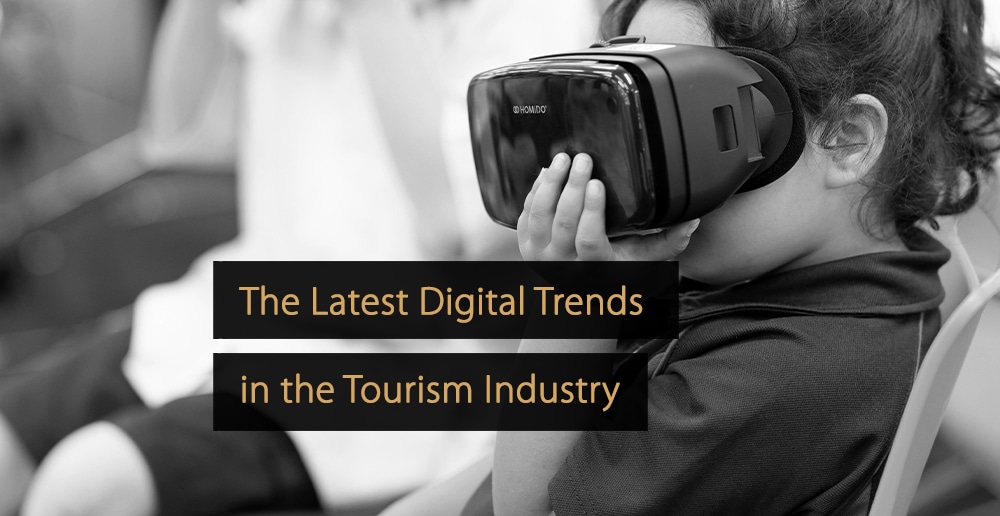
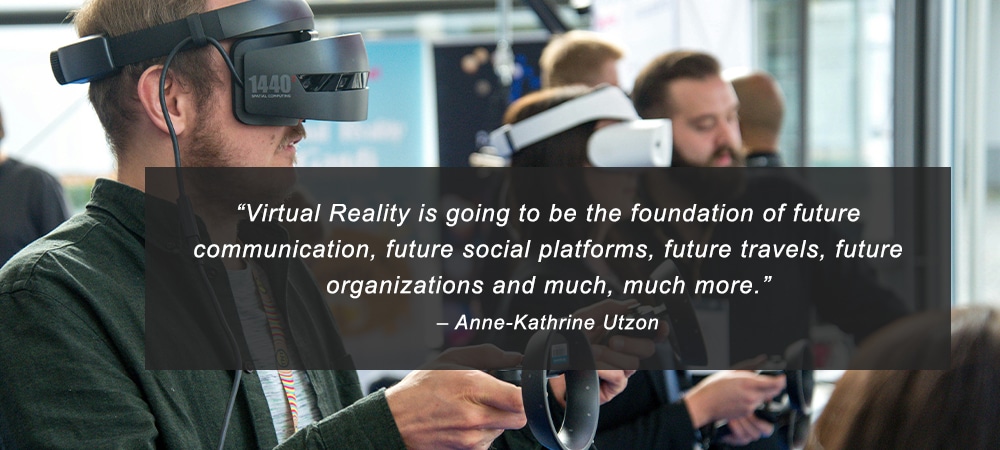
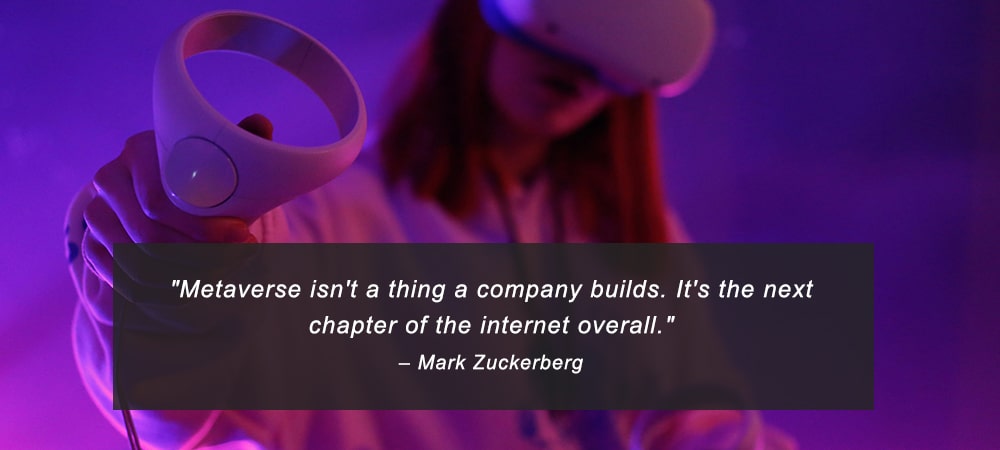

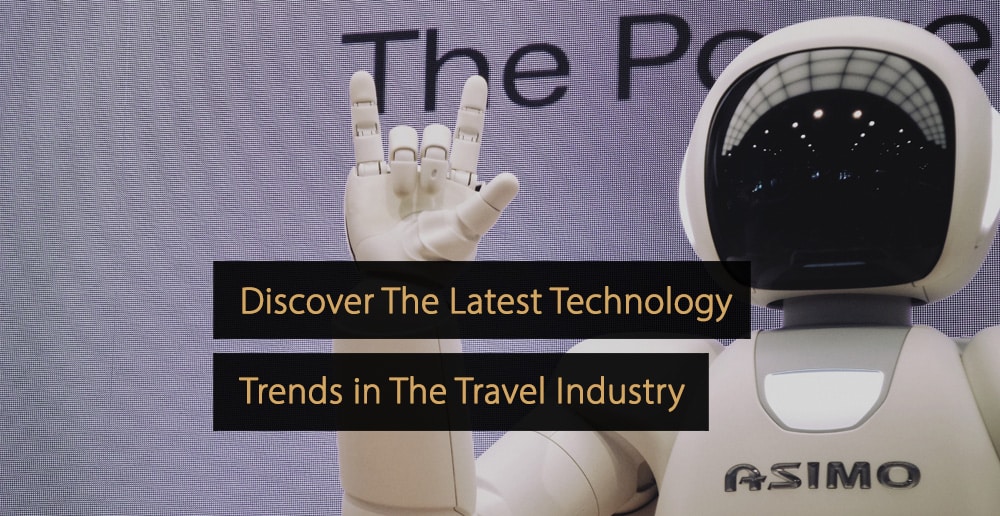




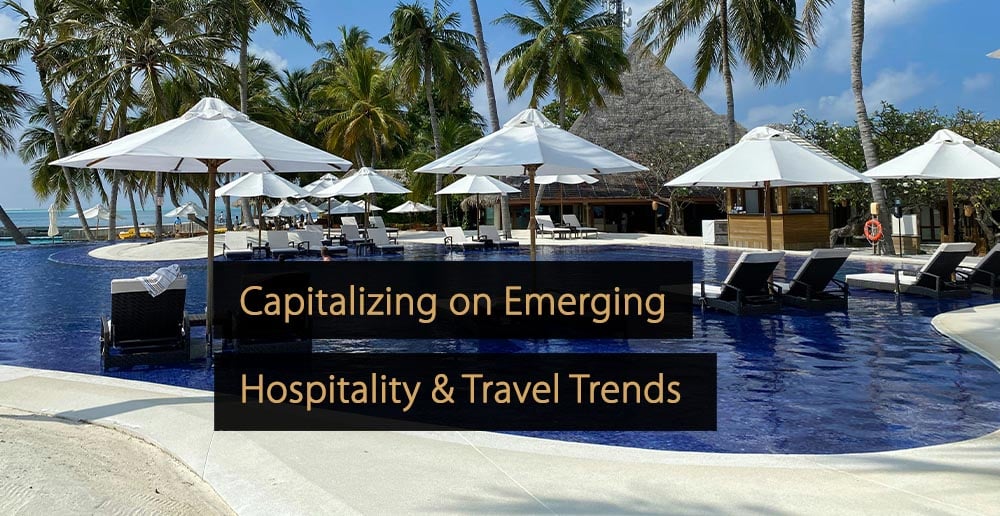
Leave A Comment